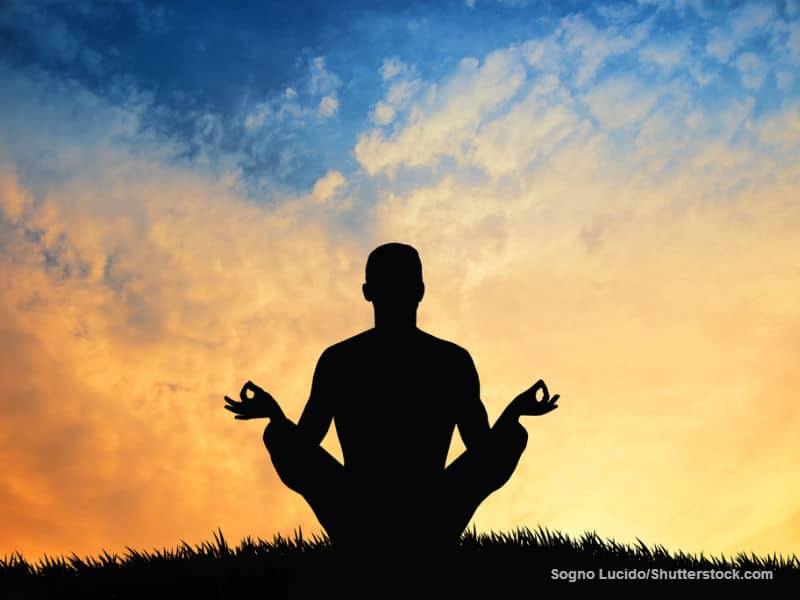A favorite Buddhist saying of mine is that in love, as in life, the things we fear most have already happened to us. Your greatest fear in love-losing your freedom or your individuality, being hurt, abandoned, controlled, betrayed, you name it-reveals the pain you have already suffered. There is also comfort in this thought, for you have already faced your worst fear. As long as you retain the wisdom gained from that experience and let go of the pain, then you need not repeat the past.
Unfortunately, your automatic, subconscious reactions to the fear of feeling the same hurt again may cause you to avoid getting too close to people. In that case, no matter how much you desire companionship, you will not find it to your satisfaction. Until you let go of the fear that binds you, you will continue to push away opportunities for happiness in love.
To break the cycle, you must recognize that your emotional defense mechanisms are attracting more pain than they deter. Herein you encounter a dilemma, for while you feel the need to relinquish the defenses that may be harming your relationships, you also feel the need to hold on to them. After all, those ingenious forms of emotional insulation are what helped you get through to this point.
Buddhism encourages us to replace defensive, fear-based reactions with thoughtful, proactive responses. Reactions tend to be irresponsible and impulsive, whereas responses, as the word itself hints, are responsible and considered. Reactions are based upon fixed beliefs and expectations from prior experiences. Responses are based on the present moment and what that moment requires.
When I was growing up, my mother often said to me, "Fear is an illusion. It is an acronym for False Evidence Appearing Real. When fear is based on past events rather than present-moment awareness, your reactions to it will invariably result in different outcomes than you hoped." Her words have proven true, particularly in the context of love.
If you are holding on to the pain of betrayal, for example, you may experience fear when your current mate even looks at another person. Your partner may be completely faithful, yet you still react with jealousy. Instead of drawing your mate closer to you, such fear-based reactions only serve to push him or her further away.
Nevertheless, subconsciously associating people in your life today with people from your past can be a hard habit to break. In a split second, you analyze subtle behaviors, superficial appearances, and countless other clues, matching them with profiles of people from your past. He reminds you of your father, she reminds you of your mother, and so on. Sometimes your reactions to people are based solely on these associations. When you subconsciously associate people today with others from your past, there is a danger that you will automatically perceive current circumstances not as what they are but as repeat performances of previous experiences.
Each time you sense you are hearing echoes from the past or feel the impulse to react in the same old way, stop and think-think about what is really going on here and now, if it truly is the same as past experiences, and then respond appropriately. When you react in fear, you limit your choices, closing yourself off. When you carefully respond, you expand your options, opening your life to new possibilities.
The Buddhist teaching of karma, or cause and effect, can guide us through the process of breaking our reactive patterns. Our karma is the sum of our past actions, both positive and negative-the balance of which will eventually return to us in kind.
According to this concept, our actions in the past have shaped our present reality, and our actions in the present will direct our future. The concept of karma applied to love explains that our thoughts, words, and deeds navigate the course of our relationships. The bottom line is this: You're in charge, and if you're looking for a specific future, you need to take action now to create it.
If you're unhappy with current relationship, for example, and you would like it to improve, you must take the action, create the karma, for it to improve. Passively wishing for your relationship to improve and taking action for it to improve are very different causes that will create very different effects. Wishes without actions are ineffective at producing change. Wishes brought to life by actions are the catalysts for all real progress.
The most important goal of a love relationship, according to Buddhism, is the spiritual and emotional growth of each partner. Only by taking action to develop oneself-in other words, creating the karma for healthy progress-can each partner contribute to the lasting growth of a relationship.
No matter what the outcome of a relationship, the outcome of a commitment to self-reflection and improvement will always be a positive one. Even if your relationship ends, you will have gained through the practice of self-mastery a deeper sense of self-love and compassion-qualities that will surely see you through the sad times while opening up a thousand new possibilities for unimaginable happiness in the future.

